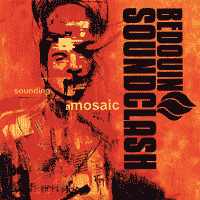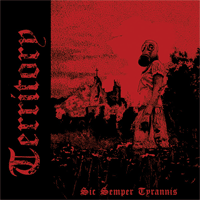
BEDOUIN SOUNDCLASH “Sounding A Mosiac”
Ska’s failure to catch on since the fall out of the third wave movement can arguably be attributed to the lack of artistic development within the genre. The vast majority of bands trying to make a go of it are just rehashing the late 90’s sound to a tee. The only bands that have garnered any attention are groups that have shifted away from the third wave sound such as FOLLY, THE EXIT, and the RX BANDITS. Although their ranks are limited, with the release of Sounding A Mosaic, Canada’s BEDOUIN (pronounced: Bed-oh-win) SOUNDCLASH are poised to enter the fold of post-third wave success stories. Unlike third wave ska albums, Mosaic is a punk-free album of traditional ska and mellow dub. BEDOUIN is so authentic in their recreation that a casual listener might assume they were straight off the boat from Jamaica. BEDOUIN pays a heavy artistic nod on Mosaic to the soul roots of early ska artists that helped create the genre like Justin Hinds and Derrick Morgan. Lead singer and songwriter Jay Malinowski perfectly showcases the soul feel of early ska through his songwriting and his lyrical delivery. The fact that he is a white Canadian is a remarkable bit of trivia considering his near perfect vocal imitation of Bob Marley. He has expertly co-opted Marley’s distinct gravely vocal sound and during songs like “When The Night Feels My Song” and “Criminal,” the impersonation is so spot on that it’s downright staggering. Malinowski decorates his flawless Marley-esc sound with a similar lyrical style. The lyrics deal heavily with sociopolitical matters as observed from an individualist perspective. However, they thankfully side step the simplistic ideals of white folk singers like Billy Brag who were quick to offer simplistic, pro-working class slogans to solve all of the world’s social inequities. Although an attention to world issues is far more interesting then standard broken hearted love songs, it’s questionable as to whether or not Malinowski is personally motivated to sing about the plight of the common man or if he is just continuing to pay homage to his influences. The remixes at the end of the album are the only moments that the record noticeably falters. The remixes of “Money Worries” and “Rude Boy Abroad” which both appear earlier in the album don’t develop the core ideas of the songs in any way. Instead of interesting reinterpretations of the songs, they come off as minimalist filler. (For the record, the ska remix is an art form that can warrant great success. Examples of stellar ska-remixes can be found on THE PILFERS’ album Chawalaleng.) Aside from the remixes, Mosaic is a fantastic release for anyone who has any interest in traditional ska. It is also a perfect introduction to the early days of ska for anyone only familiar with the likes of REEL BIG FISH, LESS THAN JAKE, and BIG D & THE KIDS TABLE.
Side One Dummy



